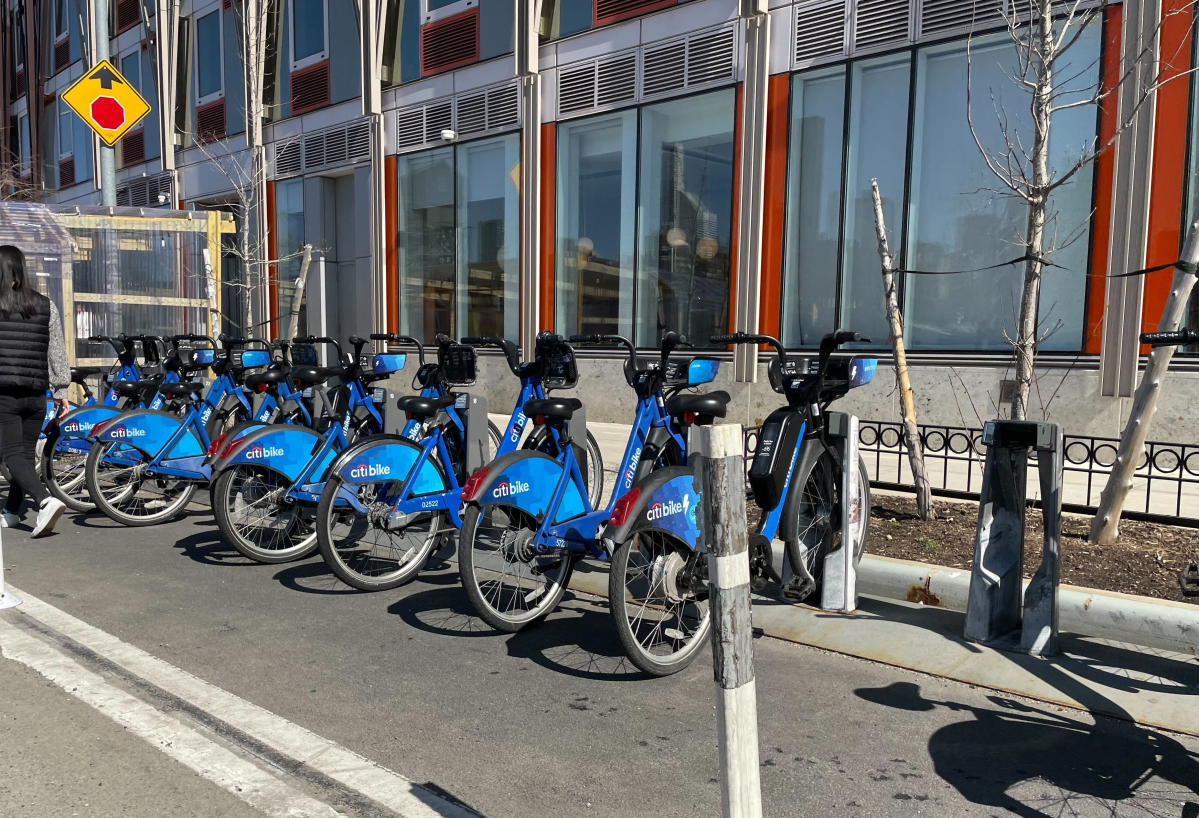By Wickham Boyle
I have lived in Tribeca for over 30 years and certainly in its graying, last decade, when its residents either got just older, or older and riche, it has seemed as if my neighborhood was a very indifferent place, politically.
Many of us who came of age in the Mark Rudd, S.D.S. anit-war protests of the ’60s and ’70s, of late have tread the road more taken. The political apathy of the generation formerly known as activist, rabble rousers is renowned — as we are more often cited for parenting vigor or traveling aggressively. But on Monday night, the official observance of Martin Luther King’s birthday, and the same night that three Democratic candidates were slinging mud in a debate, there was a political meeting in Tribeca.
It was the brain child of an unlikely foursome: Downtown resident Ruth Charney who offered her big loft in the old Bob DeNiro, Harvey Keitel building on Hudson St.; activist comedian Reno who is the resident celebrity in my building on North Moore St.; long time Obama friend, and supporter, the lawyer David Carden; and the final member being economist Jeffrey Shafer, currently the head economist and political strategist at Citigroup’s global banking division. These four had met at a previous Obama rally, and Jeffrey Shafer and Reno concluded that if the Obama movement could bring together souls as disparate as they are, then there must be something more happening. And so they endeavored to set up a Tribeca meeting designed to allow undecided voters to gather information about Barack Obama, the man and candidate.
Reno acted as the emcee managing the crowd of over 75, who took chairs, leaned against walls or lounged with kids or dogs on the loft floor. She took pot shots at the current administration and other politicians, as well as herself referencing her well-known lesbian activist roots: “I thought I had to be for Hillary because, well she is a woman and I am a woman, at least ‘menza menza’ I am a woman. But we asked people to come and hear about Obama, people who might be on the fence.” The meeting took off when Jeffrey Shafer, under secretary of international affairs in the Clinton administration’s Treasury Dept., told why he was supporting Obama. The distillate of Shafer’s path to Obama involved reading Obama’s books and simultaneously writing to the Hillary Clinton campaign with ideas, and getting no response from her advisors. In a 20-minute presentation involving great quotes, and personal stories, the essence emerged. Shafer came to the conclusion that, “Obama understands how other people see the world. He understands that unity is the great need of the hour.”
David Carden followed; a thin man, brimming over with facts, experience and information all strung together with an intelligence that heated the room. Carden unfolded his path toward supporting Obama and recounted how strongly he feels that we must have inspiration and real intelligence in out next president if we are to in any way redeem our country in the eyes of the world. Carden said, “If you had asked me 22 years ago, when my wife was working at the MacArthur Foundation in Chicago and Obama was organizing on the South Side of Chicago, if this man could be president, I would have said, yes. Let me tell you why. He is the best listener I have ever seen. He emits empathy and intelligence. This is what led Obama to stay in the business of other people’s business, which is what politics is.”
The formal presentations ended and the questions, queries and worries from the audience began to pour out. A variety of neighbors questioned electability, experience and even specific votes for both Hillary and Obama. There was a sense from some attendees that the evening had turned from fact finding to a rally for Obama. And it certainly was difficult not to be caught up in the passion evinced by Shafer, Carden and some other guests who had been in Iowa canvassing for Obama. Carden’s retelling of the Iowa trip was moving as he recounted the personal stories of those he met. He concluded with this: “We need a shared mythology. We are the stories we tell and we are also the stories others tell us.”
Certainly this evening, when dozens of neighbors rallied to share their thoughts, ideas and stories, had gone a long way to providing the assembled with both facts and the effect surrounding Barack Obama. It also had perhaps the unintended effect of uniting us as a community. We forget that we have to listen to our neighbors, know their stories, as well as our own and respect our differences and the vibrant similarities.
Yes, information was shared, but the energy, the belief that we can still be passionate was the most important byproduct for this too often apathetic voter.


































